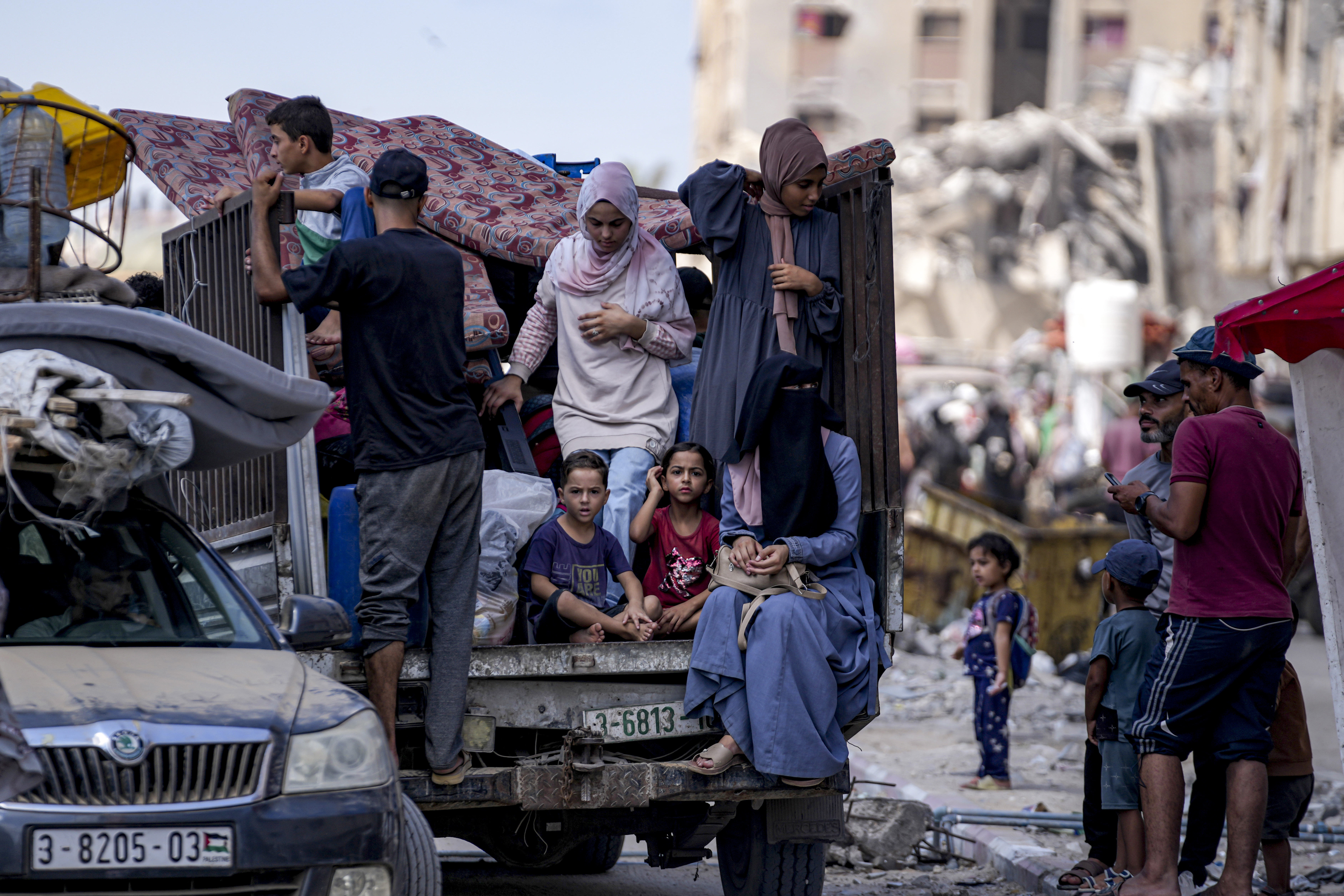The Israeli military said Tuesday that it recovered the bodies of six hostages taken in Hamas’ Oct. 7 attack that started the war in Gaza, as U.S. and Arab mediators tried to advance an agreement to halt the fighting and release scores of other militant-held captives.
The military said its forces recovered the bodies in an overnight operation in southern Gaza, without saying when or how the six died. A forum for hostage families said they were kidnapped alive. Hamas says some captives have been killed and wounded in Israeli airstrikes.
The recovery is a blow to Hamas, which hopes to exchange hostages for Palestinian prisoners, an Israeli withdrawal from Gaza and a lasting cease-fire. But it was also likely to increase pressure on Israel's government to reach a deal to release dozens of hostages who are still believed to be alive.
The military said it had identified the remains of Chaim Perry, 80; Yoram Metzger, 80; Avraham Munder, 79; Alexander Dancyg, 76; Nadav Popplewell, 51; and Yagev Buchshtav, 35. Metzger, Munder, Popplewell and Buchshtav had family members who were also abducted but freed during a November cease-fire.
Munder's death was confirmed on Tuesday by Kibbutz Nir Oz, the farming community where he was among around 80 residents who were taken captive. It said he died “after enduring months of physical and mental torture.” Israeli authorities had previously determined that the other five were deceased.
Prime Minister Benjamin Netanyahu praised the recovery effort and said “our hearts ache for the terrible loss.”
“The State of Israel will continue to make every effort to return all of our hostages — both alive and dead,” he said in a statement.
Israeli Defense Minister Yoav Gallant also praised the operation, which he said had been carried out inside Hamas' vast tunnel network. There were no immediate reports of any casualties among Israelis or Palestinians in the recovery operation.
Hamas is still believed to be holding around 110 hostages captured in the Oct. 7 attack. Israeli authorities estimate around a third of them are dead.
Feeling out of the loop? We'll catch you up on the Chicago news you need to know. Sign up for the weekly> Chicago Catch-Up newsletter.
Blinken, who is on his ninth visit to the region since the start of the war, said Monday that Netanyahu has accepted a proposal to bridge gaps in the cease-fire talks, which have dragged on for months, and called on Hamas to do the same.
Hamas has accused the United States of embracing Israeli demands and trying to impose them on the militant group. There still appear to be wide gaps between the two sides, including Israel’s demand for lasting control over two strategic corridors in Gaza, which Hamas has rejected.
Hamas-led militants burst through Israel's defenses on Oct. 7 and rampaged across the south, killing some 1,200 people, mostly civilians, and taking around 250 people hostage. Over 100 hostages were released in exchange for Palestinians imprisoned in Israel during a weeklong cease-fire last year.
Israel's retaliatory offensive has killed over 40,000 Palestinians, according to Gaza's Health Ministry, which does not say how many were militants. Air and ground operations have caused widespread destruction and forced the vast majority of Gaza's 2.3 million residents to flee their homes, often multiple times. Aid groups fear the outbreak of diseases like polio.
An Israeli airstrike in central Gaza early Tuesday killed five children and their mother, according to the nearby Al-Aqsa Martyrs Hospital, where an Associated Press reporter counted the bodies. The hospital said the father, Alaa Abu Zeid, a schoolteacher, has been in Israeli detention for the last nine months.
The mediators have been trying to finalize a proposal for a three-phase process in which Hamas would release all the hostages in return for the release of more Palestinian prisoners, an Israeli withdrawal from the territory and a lasting truce.
Blinken traveled to Egypt on Tuesday and was also expected to hold talks in Qatar.



